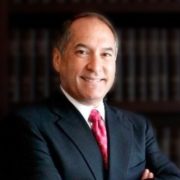On January 25, 2017, President Trump issued an executive order on “Enhancing Public Safety in the Interior of the United States.” In that executive order, he lists those people who would now be considered “enforcement priorities,” and would be put on the top of the list for deportation/removal. It is truly a scary and chilling document, as many Filipinos could now be affected or subject to priority removal.
Trump notes that “many aliens who illegally entered the United States and those who overstay or otherwise violate the terms of their visas present a significant threat to national security and public safety.” In other words, TNT’s would now be considered a threat to national security and public safety. He also states this is particularly true for aliens who engage in “criminal conduct.”
He further states it will now be the policy of the executive branch (president) to “ensure the faithful execution of the immigration laws of the United States,” and “ensure that all aliens ordered removed from the United States are promptly removed.”
The executive order then lists the “enforcement priorities,” or those aliens who will now be “prioritized for removal.” The list of those aliens, with my comments in [brackets] include aliens who:
“(a) Have been convicted of any criminal offense; [It is unclear what is meant by “any” criminal offense. If a person was convicted of a simple DUI, shoplifting, or jaywalking, that is a criminal offense. Are they now prioritized for removal?]
(b) Have been charged with any criminal offense, where such charge has not been resolved; [Does this mean if a person has only been charged with a crime, and is awaiting trial, they could be targeted for removal before the trial is over, even though they could possibly be found “not guilty”?]
(c) Have committed acts that constitute a chargeable criminal offense; [Does this mean a person may have committed some criminal offense, but was never charged, or the DA decided to drop charges?]
(d) Have engaged in fraud or willful misrepresentation in connection with any official matter or application before a governmental agency; [Many Filipinos entered the US under an assumed name, or committed other acts which constitute fraud or willful misrepresentation. When that happens, they seek a fraud waiver, or Form I – 601. Does this mean that if a person applies for a fraud waiver, seeking to be forgiven, they could be targeted for priority removal?]
(e) Have abused any program related to receipt of public benefits; [If an alien went into an emergency room of a hospital, had a baby, applied for food stamps or other public benefits, would this be considered an abuse of the public benefits program, subjecting them to removal?]
(f) Are subject to a final order of removal, but who have not complied with their legal obligation to depart the United States; [Many people have old removal orders. For example, years ago they may have applied for political asylum, but never showed up to the hearing, and now there is a deportation/removal order against them. Typically, the alien would seek to reopen the case and have the case terminated. But is DHS now going to go through the court roster, and track down all people with prior removal orders?]; or
(g) In the judgment of an immigration officer, otherwise pose a risk to public safety or national security.” [This is an extremely vague and broad discretionary determination to be made by an immigration officer. What is a risk to public safety or national security? The executive order states that people who merely overstay or otherwise violate the terms of their visa “present a significant threat to national security and public safety.” Does this now mean any alien who is out of status poses a risk to public safety or national security, and therefore can be targeted for priority removal?]
As you can see, many otherwise law – abiding aliens could soon be an enforcement priority for removal merely by having overstayed or having committed minor crimes years ago. Trump had previously said he wanted to target the felons and terrorists first, but this list practically includes every alien who is out of status or committed even a minor crime.
That is why it is all the more important that if you have any immigration issues, you’re out of status, applying for additional immigration benefits, or if you simply have any doubts or concerns, you should seek the advice and guidance of an immigration attorney, to help you navigate these uncertain waters.
* * *
Michael J. Gurfinkel is licensed, and an active member of the State Bar of California and New York. All immigration services are provided by, or under the supervision of, an active member of the State Bar of California. Each case is different. The information contained herein including testimonials, “Success Stories,” endorsements and re-enactments) is of a general nature, and is not intended to apply to any particular case, and does not constitute a prediction, warranty, guarantee or legal advice regarding the outcome of your legal matter. No attorney-client relationship is, or shall be, established with any reader.
WEBSITE: www.gurfinkel.com
Call Toll free to schedule a consultation for anywhere in the US:
(866)—GURFINKEL
Four offices to serve you: LOS ANGELES · SAN FRANCISCO · NEW YORK · PHILIPPINES







